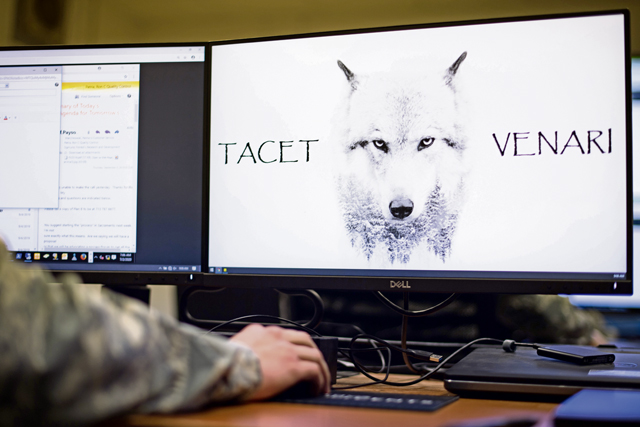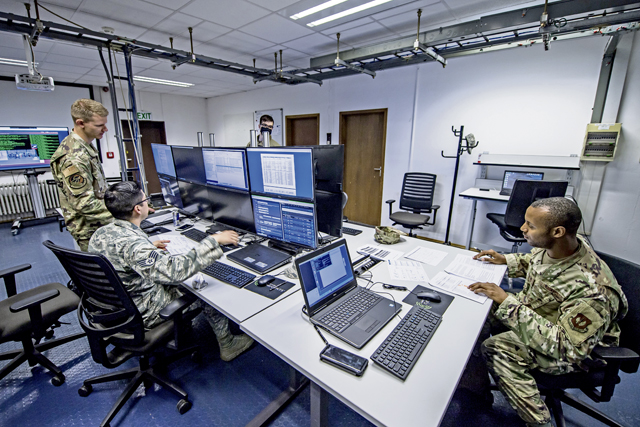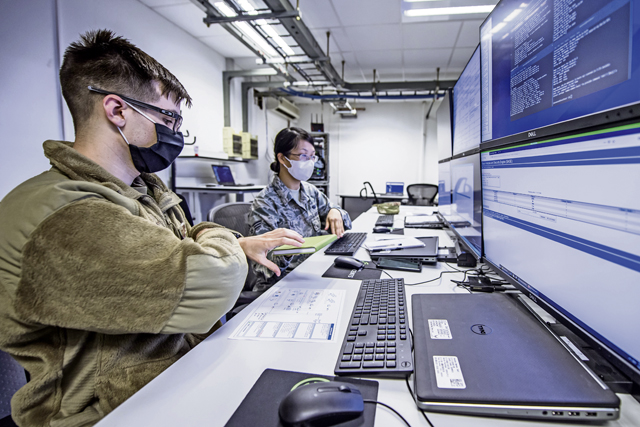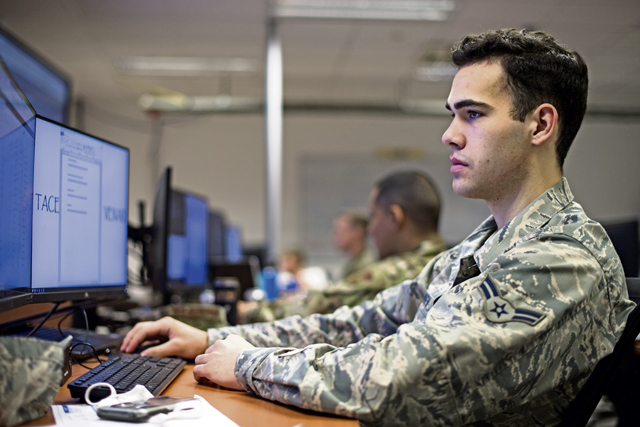U.S. Air Forces in Europe-Air Forces Africa held exercise Tacet Venari to better prepare local cyber defenders in safeguarding critical technological infrastructures, June 24-July 2.

Tacet Venari gave Airmen the opportunity to identify, detect and respond to cyber threats ranging from lesser resourced hacktivist groups to advanced large-scale entities at a nation-state level. The capability to successfully defend against such threats allows the Air Force to ensure mission continuation without hiccups or rendering the service vulnerable against more damaging consequences.

“(The exercise) provides training to the mission defense team members,” said Master Sgt. Michael Simons, Headquarters USAFE-wAFAFRICA A6 defensive cyber operations integration manager. “This is our homegrown training event using our cyber range that was procured at the beginning of 2019. What we do is bring out the red team, the hackers, and the mission defense teams. (The MDTs) have their terrain that we’ve built out ahead of time, and they have to defend against (the hackers) to provide mission assurance.”
The training was split into two MDTs. One protected a simulated refueling mission out of Royal Air Force Mildenhall, England, while the other protected a simulated F-16 mission out of Aviano Air Base, Italy. Both teams utilized the cyber range to detect potential cyber threats to ensure continuation for their respective missions.

“This hands-on training is important because we do a lot of self-paced training or in-classroom learning, but we don’t always get the direct scenario-based training where we can actively participate in what it would look like if we were being attacked,” said Master Sgt. Robert Leppla, 1st Combat Communications Squadron, Tacet Venari MDT lead. “This allows us to simulate that environment so we can respond appropriately to different scenarios that we may come across while we’re trying to defend a mission objective.”
After the team members determine a threat, they report their findings through their chain of command.

“Their job is to assure the wing commander’s priorities,” Simons said. “They make sure the cyber aspect is good, and that all the services they need to have up, remain up to perform the mission.”
Tacet Venari is a recurring exercise that bolsters cyber defense capabilities for the Air Force as a whole.
“Coming here, they’re able to see it in real-time, and learn and practice their tactics, techniques and procedures against adversaries,” Simons said.


